How to Avoid the Work Gossip Trap
Office gossip is nothing new — people are bound to talk about other coworkers or speculate on happenings within an organization. However, there’s a big difference between harmless chatter and inflammatory rumors — when the latter becomes prevalent, it ultimately hurts reputations, feelings and even impacts your company’s bottom line.
And, if you tend to engage with workplace rumors on a regular basis, even though it might seem benign, it might end up damaging your reputation.
Here’s how to better manage gossip at work — to reduce drama, increase productivity and improve your standing.
Understand Why It Happens

“To effectively address gossip in the workplace, it’s important understand why it happens,” explains Todd Davis, EVP and chief people officer at FranklinCovey and author of “Get Better: 15 Proven Practices to Build Effective Relationships at Work.”
“Gossip is something most people have dealt with since they were in grade school, either by participating in it or being the subject of it,” he said. “While gossip is never constructive or helpful, it often gives those who ‘join in’ a sense of camaraderie. That is, of course, until they become the subject of the gossip.”
Why It Matters
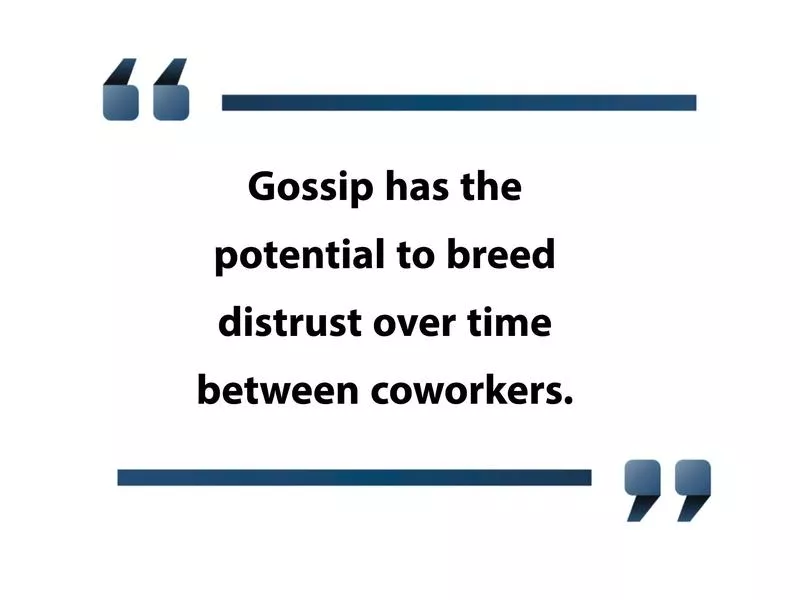
Negative gossip impacts productivity, morale, employee engagement and turnover.
When team members spend their time engaging in gossip, they’re obviously not focused on work.
Similarly, gossip has the potential to breed distrust over time between coworkers, and can even push high-performing individuals to seek jobs somewhere else.
Why It Might be Good (Sometimes)
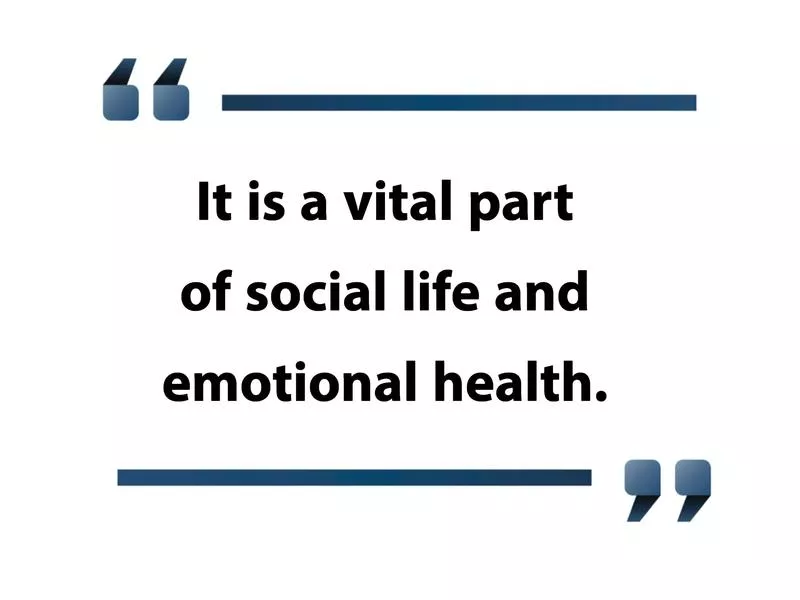
At the same time, emotional consultant Jessica Moore says gossip is an important method of informal information sharing — but only when done with care and intention to solve problems. Otherwise, she warns, it can easily damage relationships and create toxic social and work environments.
“Studies have shown that gossip is universally practiced by people of all ages and genders, and for better or worse, it is a vital part of social life and emotional health,” she notes. “Anthropologists see gossip in humans as a basic tool of socialization and connection, like the grooming behaviors that many animals use to form bonds with each other.”
Be Solution-Oriented and Set the Tone
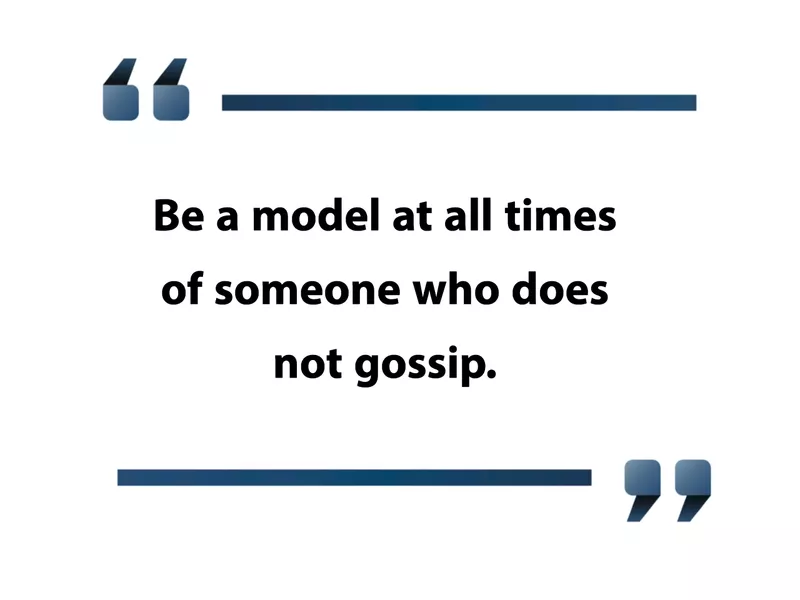
Davis says there are ways to successfully minimize and even eliminate gossip, and it starts with each individual. A attentive manager can help, but it is how coworkers interact with each other that sets the tone for how gossip can breed in any given workplace.
“First and most important of all, be a model at all times of someone who does not gossip,” Davis advises. “When someone else begins to gossip, without being condescending, say something like, ‘You seem really passionate about this. What do you think would be the best way to address it directly with so and so?’ That language helps to quickly redirect the gossip into a positive conversation about how to resolve an issue versus just talk about it.”
Why You Should Refrain
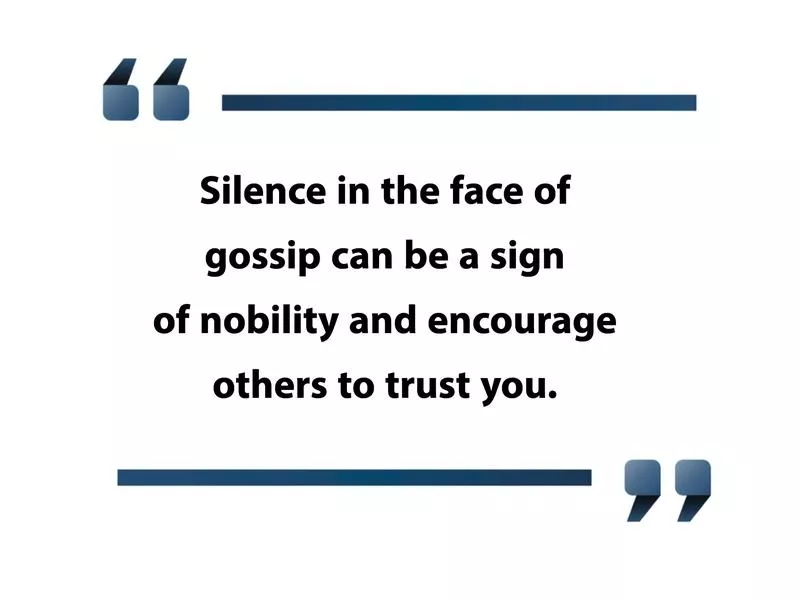
Logan Jones, a psychologist and empowerment coach based in New York City, also suggests refraining from gossip, simply because refusing to engage can have a ripple effect.
“When you stop engaging in any behavior, it typically diminishes and becomes less of a habit,” he says. “For a time, you may feel awkward or like the odd one out if you refrain from gossiping.”
Jones said that that those who don’t gossip tend to be respected more in the workplace. Silence in the face of gossip can be a sign of nobility and encourage others to trust you, he said.
“In time, the space that gossiping used to fill will slowly be replaced with more stimulating and intimate conversations,”Jones says. “Once people get used to you not gossiping, then the amount of negative talk around you will reduce. While it may be less fun than gossiping, people won’t do it unless you are.”
You Can Confront Rumors
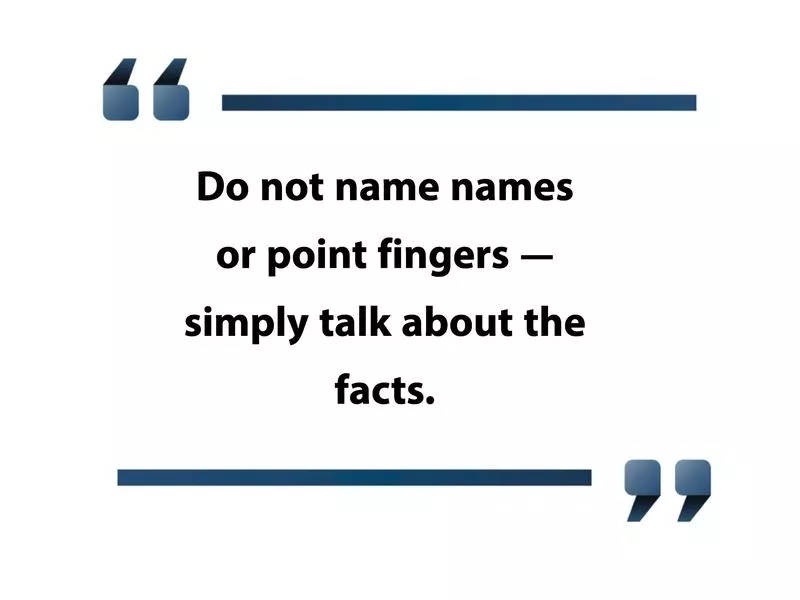
Another approach involves addressing the gossip head-on, which can be done in a public or private setting.
Certified career and life coach Emily Marquis says, “Ignoring rumors and gossip will only fuel them. If the rumors or gossip are about general things in the company, go ahead and have a group meeting to talk about the truths of the situation. Do not name names or point fingers — simply talk about the facts. If the gossip is more personal, have one-on-one meetings to ask questions, get answers and clarify.”
Or Steer Clear of Them
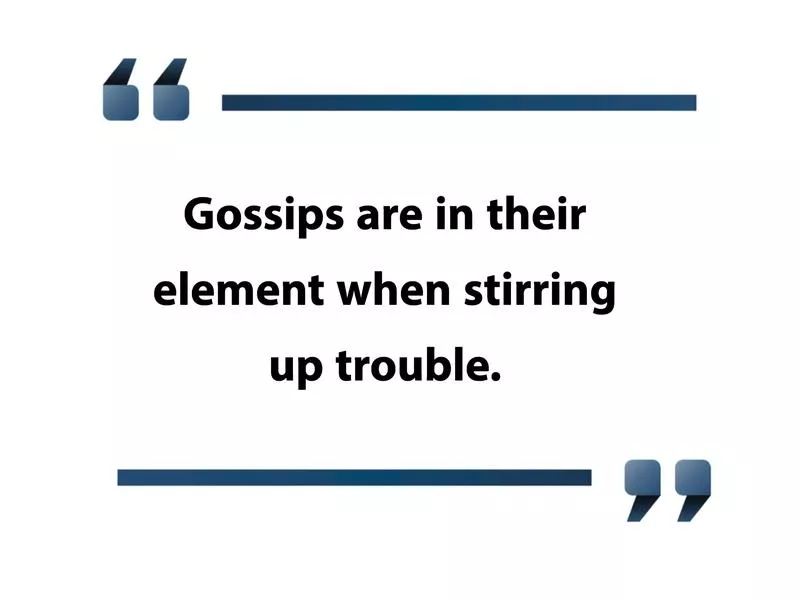
If that feels too confrontational, you can also manage a gossip by staying calm and fact-oriented during any conversation.
“Acknowledge what they say, then let them know the business consequences that could result from the information they are spreading,” says Linda Swindling, workplace communication expert and author of “Stop Complainers and Energy Drainers.”
“Don’t get lost in the drama,” she advises. “Gossips are in their element when stirring up trouble. Stay grounded and insist on a problem-solving conversation instead of one based on opinions.”
Leaders Should Push for Transparency
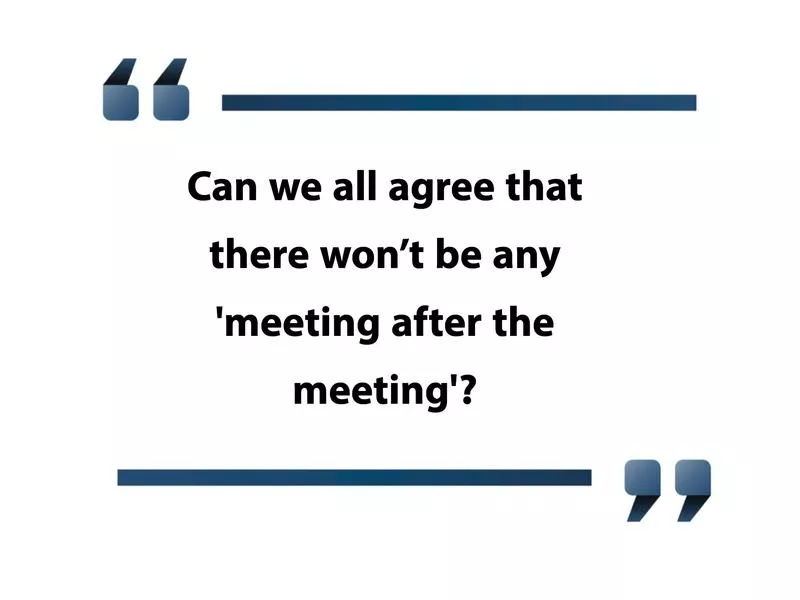
Marquis often recommends three approaches for leaders who want to limit gossip: authenticity, accountability and curiosity.
She says that culture starts with policies about respectful communication at work, and this behavior should be both modeled and continually reinforced at orientation for new employees as well as ongoing company meetings. If you discover someone is gossiping or starting rumors, then use such policies to hold people accountable.
You can also maintain an open-door, “any question is welcome” mindset of your own, particularly if you manage other team members. She says this allows you to keep information flowing and gives individuals a chance to bring up tough topics.
“A final practice I’ve found to be successful is at the beginning of a team meeting, I will say something like, ‘Let’s make sure we address all of the topics on today’s agenda in a respectful but candid way,’” says Davis. “In other words, can we all agree that there won’t be any meeting after the meeting, but that everyone will share their opinions and even disagreements here with the entire group?”
Remind People of Your Brand and Values
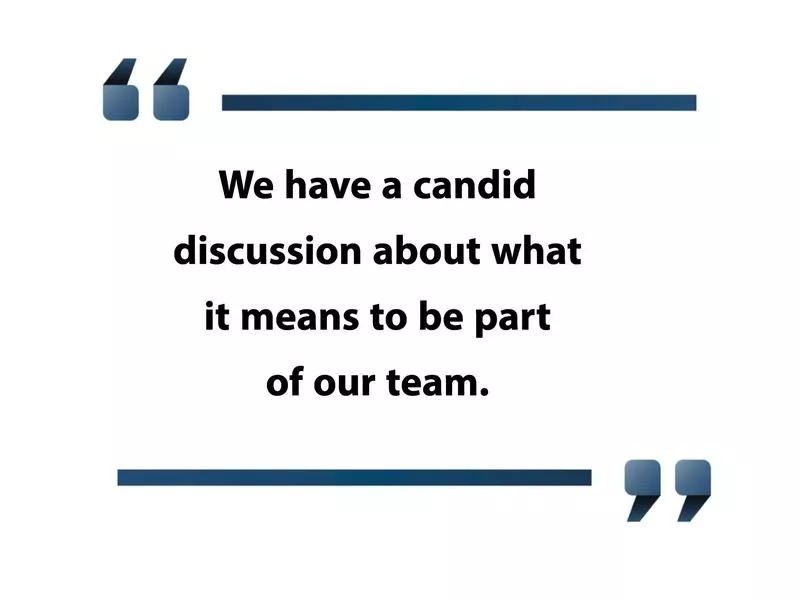
Nearly every day, situation arise in every workplace where gossip occurs, and it’s easy for people to say something mean or make a judgment. Because participating in gossip is so common, Davis underscores the importance of frequent, ongoing reminders for everyone — from leaders to brand new employees to seasoned team members — about why it’s not okay.
“When someone new hires on, we have a candid discussion about what it means to be part of our team,” he says. “As we review our goals and objectives, and what we want our ‘brand’ to be within the larger company, I always talk about the importance of honest and supportive relationships with others. We discuss what it means to be ‘loyal to the absent.’ When you have a difference of opinion or a frustration with someone, it’s much more effective to talk to the person rather than to be talking about the person. By having this conversation up front when someone first joins us, it establishes the rules of engagement for how we operate as a team.”
Don’t Let It Get to You

Finally, try not to let gossipy behavior wear you down, because that’s when you might find yourself contributing to the problem itself.
“We all have positive energy reserves, and we all encounter difficult situations and toxic people who threaten to drain us,” says Jones. “Understandably, it’s hard to remain hopeful when balancing gossipy people in our professional and personal lives. Yet, you must remember that it is possible, and imperative, that you take steps each day to protect your ‘internal sunshine.’ If someone gossips or treats people poorly, resist the temptation to sink to their level. If you’re angry with someone, ask yourself: Do I want to fuel the fire? Their negativity and gossipy behavior is not about you. Remember your power to choose how to tap into positive energy.”